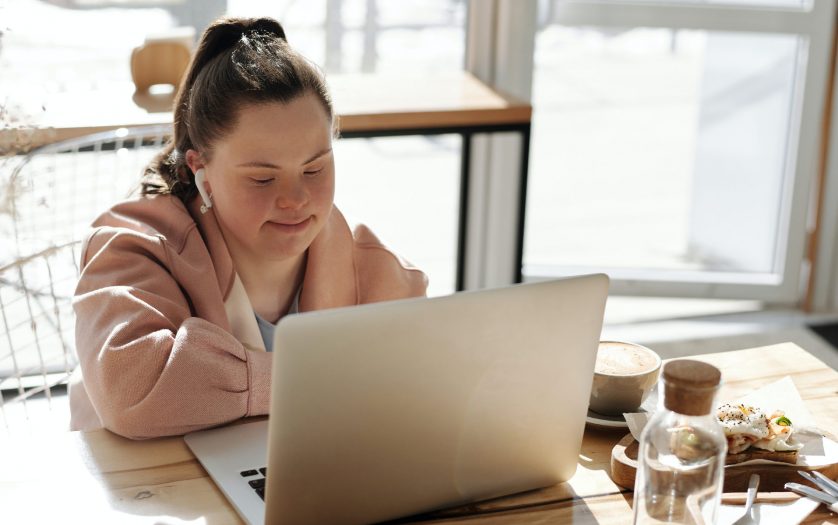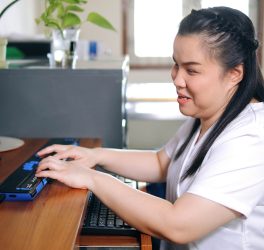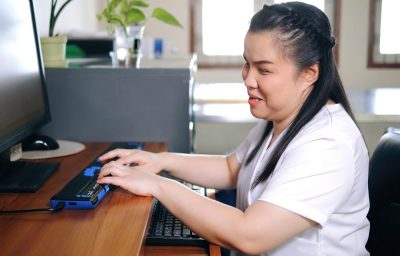
The Human Rights Council held its annual discussion on the integration of a gender perspective throughout the work of the Council and its mechanisms, with a focus on the gender digital divide in times of the COVID-19 pandemic. The Council also concluded its general debate on human rights situations that require the Council’s attention.
Michelle Bachelet, United Nations High Commissioner for Human Rights, said that the gender digital divide was a reflection of the overall discrimination faced by women and girls. Issues of access to, use and misuse of digital technologies should be guided by international human rights norms and principles, especially equality, non-discrimination, inclusion, participation and the provision of effective remedies. In response to the pandemic, good practices had already been developed by some States, such as monthly free data or free access to information content about the pandemic. Ms. Bachelet concluded by saying that if they did not succeed, there was a significant risk that technology would actually widen gender inequalities.
Tlaleng Mofokeng, Special Rapporteur on the right of everyone to the enjoyment of the highest attainable standard of physical and mental health, said that a number of factors posed significant challenges in the realisation of equitable and non-discriminatory digital health. The global digital divide in much of the Global South and in other developing contexts excluded many from benefiting from digital health and related innovations, she said, explaining that it affected women and adolescent girls in particular.
Tatiana Vasconcelos, Disability Consultant, said that the pandemic had deepened the “circle of invisibility of disability”, in which the needs of persons with disabilities had not been taken into account when designing and implementing public policies to address the needs generated by this global crisis. She recommended supporting recovery responses that included a human rights approach, and that placed all people at the centre of the solutions, without any distinction of gender, age, ethnicity, race, religion or disability.
Jaroslaw Ponder, Head of the Office for Europe at the International Telecommunication Union, said that COVID-19 had further widened the gender gap in technology. Focusing on working for a more gender balanced information communication technology sector and for a more gender balanced use of it across society was imperative. Without greater involvement of girls and women in technology, the kinds of products, services and platforms being created would not address the needs of half the population.
Lainah Ndiweni, Legal Researcher, said that there was a need to address the inequalities in access to information as many women and girls could not afford the high cost of data. There was a need for the Human Rights Council to strengthen capacity building and advocacy in all spheres of women human rights defenders in bridging the digital gap in women and girls. The Council should also ensure that responses to mitigate the economic impacts and digital divide must be gender centred and promote all women in all areas.
In the discussion, speakers stressed the importance of the integration and implementation of a gender transformative perspective in the work of the Human Rights Council as well as an intersecting perspective into the Human Rights Council resolutions, and mainstreaming it in the work of Special Procedures and in the mandates of fact-finding and monitoring missions. Some speakers said that the digital divide also had an inter-generational dimension that needed to be considered. Particular attention needed to be paid to women and girls who were victims of intersecting forms of discrimination.
Speaking was the national human rights institution: National Human Rights Commission India. Also speaking were the following non-governmental organizations: European Region of the International Lesbian and Gay Federation, Asian-Pacific Resource and Research Centre for Women, Stichting CHOICE for Youth and Sexuality, Plan International, and Action Canada for Population and Development.
The Council also concluded its general debate on human rights situations that require the Council’s attention.
Speakers highlighted that freedom of religion was a very important human right that could not be derogated from, even in times of public emergency. Other speakers stated that much like any other right, freedom of religion was not absolute and that it should be balanced with other rights, including the right to education for children. Allegations of human rights violations in specific countries and regions were mentioned.
Speaking in the general debate were the following non-governmental organizations: Indigenous People of Africa Coordinating Committee, International Association of Jewish Lawyers and Jurists, Association Ma’onah for Human Rights and Immigration, Japan Society for History Textbook, Global Appreciation and Skills Training Network, Asian Legal Resource Centre, Reprieve, L’Observatoire Mauritanien des Droits de l’Homme et de la Démocratie , Association Bharathi Centre Culturel Franco-Tamoul, Association pour la défense des droits de l’homme et des revendications démocratiques/culturelles du peuple Azerbaidjanais-Iran , Community Human Rights and Advocacy Centre, Conseil de jeunesse pluriculturelle, Alliance Creative Community Project, Institut International de l’Écologie Industrielle et de l’Économie Verte , PRATYEK and ABC Tamil Oli.
At the end of the meeting, India, Iran, China, Latvia, Venezuela, Russian Federation, Democratic People’s Republic of Korea, Turkmenistan, Lithuania, Belarus, Japan and Armenia, Cuba, Algeria, Poland, Indonesia, Iraq and Saudi Arabia spoke in right of reply.
The webcast of the Human Rights Council meetings, go to https://media.un.org/en/webtv/








